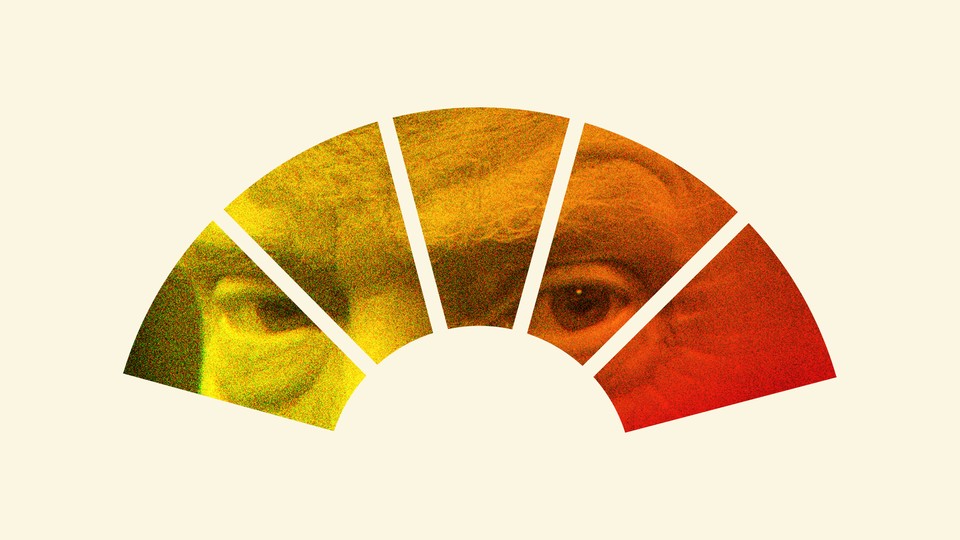Trump’s Purposeless Fury
4 min read
The first post-trial press conference of the once and potentially future president, and now convicted felon, was bizarre, even by his standards. The word unhinged tends to be overused in this context, but Donald Trump lacked focus as he spoke after the conclusion of his trial in a New York state court on 34 felony counts relating to his payoff of the porn star Stormy Daniels. The presumptive Republican nominee ranted about this and that, including off-topic riffs on “Little League games” being canceled, “propane stoves,” the rainy weather, and immigrants living in “luxury hotels.” It wasn’t really a press conference—he took no questions—but nor was it what some feared it would be: a call to action.
Trump hasn’t given up on beckoning violence or using the threat of violence by his supporters as a campaign strategy. Certainly, right-wing social media was filled with threats against jurors and calls to violence in light of the verdict. But that reality, and the fact that Trump does not condemn them, is not new, however unforgivable.
What was new was that Trump didn’t run with it. His speech was dark, but not purposeful.
Trump could already have started using his sentencing date, July 11, as a cause for his supporters and the GOP elites to rally around, much as he did with January 6, 2021. Then, the last time he lost big, he was still president and had all of the tools of the presidency to try to stop his loss from taking effect and prevent the transfer of power. But he doesn’t have that this time. He is not in office; this is not 2021. He may yet attempt to orchestrate disruption, protest, even violence, but unless he is elected again, he cannot promise his supporters that they will be pardoned. And he could actually face jail time. The calculations are different.
First, Trump knows enough about the law to know that his behavior between the verdict and the sentencing will be a factor in the judge’s decision about what penalty to impose. During the trial itself, Trump risked antagonizing Judge Juan Merchan by violating gag orders and calling him a “devil” and a “tyrant,” but Trump’s day in court is not done. Just a few days before the Republican National Convention opens next month, Merchan will reconvene his court to determine Trump’s sentence based on a number of factors, including, presumably, whether there is a mob outside.
Second, a great deal has happened since January 6, 2021, and Trump should rightly be worried that he cannot deliver the crowds. The MAGA movement is furious but not organized. “Mass mobilizations are hard and require work,” The Atlantic’s Ali Breland wrote on Friday, including “boring little logistical things.” No such effort on Trump’s behalf seems under way. And, as I’ve written previously, Trump’s people may be angry, but they are also dispersed and in disarray, and many are in jail because of the post–January 6 prosecutions. Several leaders of the Oath Keepers and the Proud Boys, groups that took such a planning role before the Capitol riot, have been found guilty and are serving time for seditious conspiracy. Today, Trump’s rallies are small, though he continues to lie about the numbers.
What was notable about the atmosphere around the trial was the absence of much organized Trump support on the street. The faithful among the GOP elite and possible vice-presidential candidates embarrassed themselves by tramping dutifully through the courtroom, but overall, the show of solidarity was pretty sedate. Any assumption that Trump partisans would be unlikely to show up in liberal New York City is belied by the fact that Trump won nearly 40 percent of New Yorkers’ votes in 2020—so supporters could have been there if they’d wanted to be. Trump seems to know that it’s better to claim popular support—“I’m leading Biden by a lot,” he lied—than have to prove it.
Third, Trump has an election to win—and to win it, he will need more votes, in the right states. Independents may be uncomfortable voting for a convicted felon, or they may not care that much—the early evidence suggests that there are more of the former type, but not conclusively so. Meanwhile, Trump is demanding allegiance from his party like an autocrat, but that’s easy—the GOP has proved itself nothing but slavish—and much easier than figuring out how to expand his base. Trump’s recent trip to seek support at the Libertarian National Convention was a disaster: He roused more hecklers than voters.
Trump lost the election in 2020. He lost in court last week. He’s on a longtime losing streak, and he knows that the only way to turn that around is to win the presidency. The likelihood that Trump can’t help himself is always high, and he could easily beckon violence on his social-media platform and get a response from the die-hard fringe. But Trump may be calculating that a spectacle of unruly masses on July 11—assuming he could get them—would not be such a great look for a presidential candidate when the whole world is watching.



